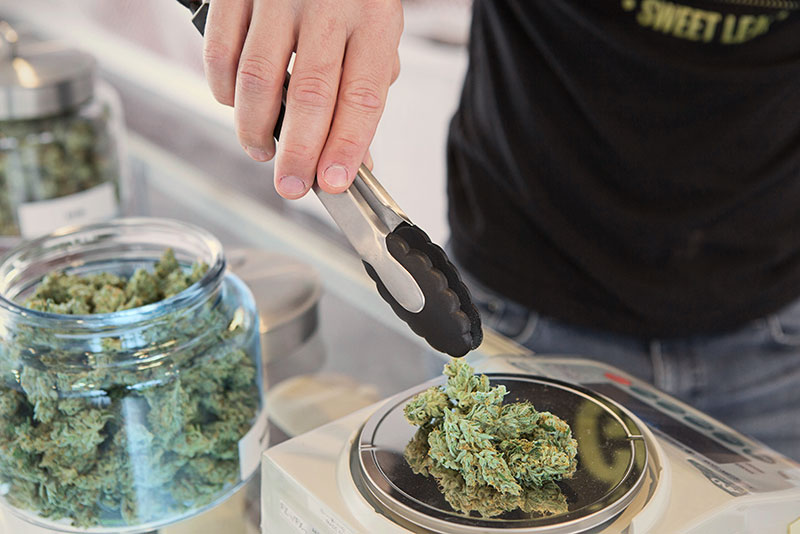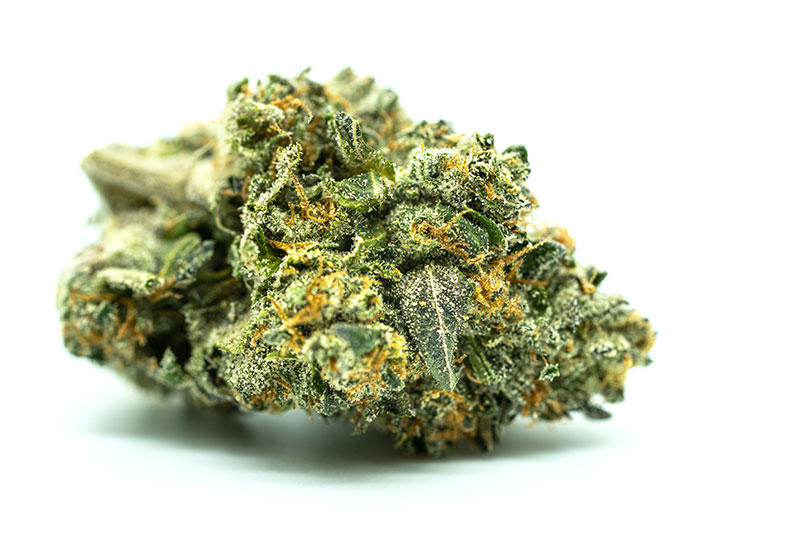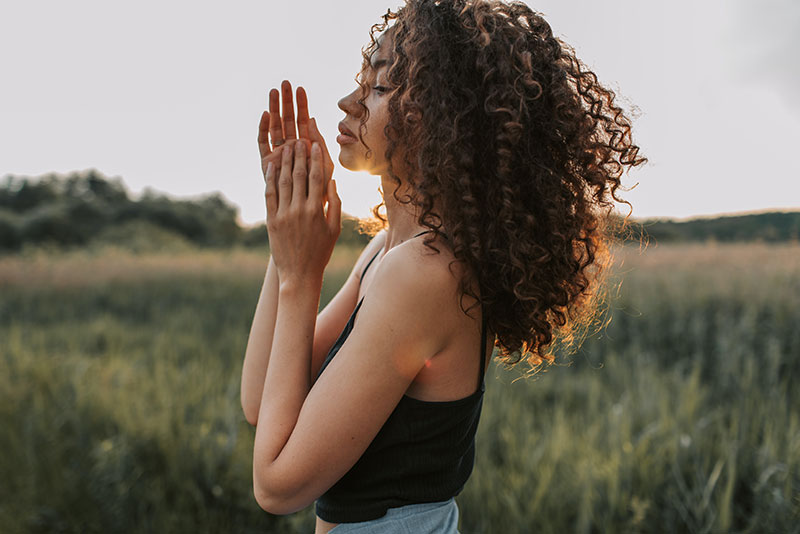By Samuel Popejoy | CONTRIBUTOR |
The COVID-19 pandemic has launched the United States into a situation outside of living memory. While we can look to history for parallels with the Spanish Flu pandemic of 1918, none of us were alive to experience that similar instance of forced quarantine, mask debates, and economic strife.
Cannabis was available in pharmacies in 1918, but hardly anyone used it. With more than 35 million American adults now using cannabis regularly, it’s only natural that the country would turn to the stress-relieving properties of this plant when faced with the unprecedented stresses of the pandemic.
Is cannabis useful for combating pandemic-related stress, depression, and anxiety? Learn the role cannabis should play within a holistic approach to the COVID-19 pandemic.
COVID-19 has profoundly impacted mental health
Faced with job loss, reduced access to amenities, and the constant fear of contracting a viral pathogen, 53% of Americans report that their mental health has been negatively affected due to stress, anxiety, and depression associated with the virus. According to one review of the available data, 29.6% of Americans now suffer from extreme stress, 31.9% suffer from anxiety, and 33.7% suffer from depression.
Even individuals who don’t identify as being stressed, anxious, or depressed have been affected by the lifestyle changes that pandemic lockdowns have initiated. Unable to exercise since gyms are closed and unable to get out in the sunshine or visit loved ones due to stay-at-home orders, both mental and physical health have declined precipitously due to the “new normal” that has rapidly replaced our existing way of life.

Affected individuals are seeking alternative solutions
Rather than being dubbed social pariahs for refusing to go with the flow, Americans are developing creative solutions to their new state of fear and captivity. In some cases, lockdown-affected individuals are doubling down on healthy eating, getting enough sleep, and working out from home, but predictably, we’ve also started relying more heavily on our usual vices.
During the first week of widespread lockdown orders, alcohol sales increased by 54%, and as of September, 3 out of 4 adults report that they now use alcohol at least one more day out of the month than they used to. Pornography use has also increased during the pandemic, fueled by loss of physical contact and boredom.
Perhaps most startlingly, use of cannabis among individuals already consuming this substance for medical reasons has increased by 91% during the pandemic. The reason that cannabis users cited to explain their consumption increase? Pandemic-related hits to their mental health.
How cannabis can help with stress, anxiety, and depression
Unlike alcohol, tobacco, and porn, cannabis is a tricky issue from a mental health perspective. While this substance has an obvious potential to harm, it can also genuinely help with anxiety, stress, and depression.
Some 49% of cannabis users consume this substance to help with anxiety, and 39% use cannabis to combat depression. Recent research confirms that cannabis has the potential to reduce depression, anxiety, and stress to some degree.
Cannabis sativa contains more than 100 different cannabinoids, and each of these cannabis-specific substances affects the brain and body differently. THC, for instance, stimulates the dopamine receptors in your brain, leading to a sense of intoxication that makes stressors and mental illness seem very far away.
CBD, on the other hand, primarily increases levels of serotonin in your nervous system, helping you feel calm and confident without any intoxication. It’s also likely that the terpenes in cannabis, which are primarily aromatic but also have antioxidant effects, might impact the way that this plant affects your mental health as well.
Different strains have different effects
While often treated like a monolithic substance, cannabis is, in fact, a highly varied plant with thousands of different forms. Each strain or phenotype of cannabis has a unique chemical makeup, meaning that no two strains of Cannabis sativa will affect you the same way.
Most remarkable are the differences between the two most popular cannabis compounds, THC and CBD. While THC provides a dissociative, mild-altering high, CBD provides a mild state of relaxation. In every relevant study that’s been conducted so far, cannabis strains with high ratios of CBD to THC are considerably more effective for mental health disorders.

Potential drawbacks of using cannabis during COVID-19
Despite the fact that an ever-increasing number of Americans are now using THC-rich cannabis to combat the stress, anxiety, and depression associated with COVID-19, THC shows significant potential for abuse, and this substance is considerably more habit-forming than experts initially anticipated. The dopamine surge provided by THC may temporarily reduce the symptoms of stress and affective disorders, but this cannabinoid may deteriorate mental health over the long term.
Compared to THC, CBD shows far greater therapeutic potential. This cannabinoid is non-addictive, and it displays no potential of abuse. CBD is also non-intoxicating, and it does not appear to have any significant side effects. By stimulating serotonin rather than dopamine production, CBD provides a level, balanced effect that may be beneficial to long-term mental health.

Lifestyle is key
No substance is going to provide you with the tools you need to cope with pandemic-related mental health concerns on its own. While either THC or CBD might supply you with a piece of the puzzle, it’s up to you to assemble the picture of what your mental health is going to look like as pandemic fears and lockdowns continue to impact your life. Here are a few things you should be doing to improve your mental health whether or not you decide to use cannabis:
- Get plenty of sleep
- Try stretching or meditating
- Exercise regularly—even if it’s inside
- Improve your nutrition
- Abstain from overuse of alcohol, drugs, and pornography
Best ways to use cannabis for COVID-related anxiety and depression
While there’s no direct evidence that smoking cannabis might worsen the symptoms of COVID-19, tobacco smoking makes coronavirus symptoms more severe. As a result, you should be cautious when ingesting cannabinoids via the pulmonary route. There’s not enough evidence to draw any conclusions, but even vaping might make the symptoms of this respiratory condition worse.
Instead of smoking or vaping, you should enjoy your favorite cannabinoid in the form of a tincture, capsule, or edible. Ingesting cannabinoids orally reduces their bioavailability, lowering the intensity of their effects and also diminishing the psychoactivity of THC.
Remember that CBD trumps THC when it comes to the best cannabinoids to use for mental health amid the COVID-19 pandemic. Largely due to its potential for abuse, THC should only be used in conjunction with CBD since this cannabinoid reduces THC’s psychoactivity.
Each strain of cannabis has unique effects, and you might find that one particular phenotype helps you more than any other. Experiment responsibly, and never stray from making your mental health your top priority as we navigate the fallout of COVID-19 together.
Subscribe to get notifications about future articles.
About the Author: Samuel Popejoy – Contributor


